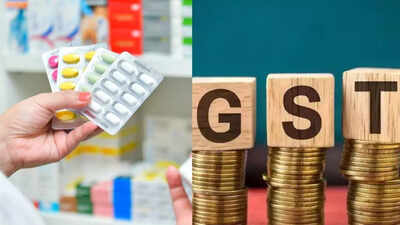The rollout of GST 2.0 from 22 September 2025 marks a major relief for patients battling cancer and other chronic illnesses in India. Under the revised GST regime, 33 life-saving drugs and medicines have been exempted from GST, while three critical drugs used for cancer, rare diseases, and severe chronic conditions are also taxed at zero percent. In addition, most other medicines will see a reduced GST rate from 12% to 5%. The reform extends to medical devices, diagnostic kits, and individual health and life insurance policies, reducing costs significantly and making healthcare more affordable and accessible for millions of households nationwide.
GST rate cuts on Cancer medicines and medical devices
The GST Council has made specific revisions to lower the financial burden of healthcare:
- 33 life-saving drugs and medicines: GST reduced from 12% to 0%, covering drugs used in cancer,
chronic diseases , and rare conditions. - 3 critical drugs for cancer and rare diseases: GST reduced from 5% to 0%, ensuring zero tax on essential treatments.
- Other medicines and drugs: GST reduced from 12% to 5%, lowering costs for common prescriptions.
- Medical devices and diagnostic kits: GST on wadding gauze, bandages, glucometers, and diagnostic reagents cut from 12–18% to 5%.
- Individual health and life insurance policies: Fully exempted from GST, including senior citizen and family floater policies.
These changes are expected to make medicines, treatments, and healthcare services significantly more affordable for patients across India.
Impact on cancer treatment and chronic diseases
The GST exemptions directly reduce out-of-pocket expenses for patients undergoing treatment for serious illnesses. Cancer patients, in particular, will benefit from lower prices on therapies involving life-saving drugs. Similarly, those suffering from rare genetic disorders or chronic conditions requiring specialty medications will see considerable financial relief. Early diagnosis, adherence to treatment schedules, and ongoing care become more manageable, improving patient outcomes and access to advanced therapies.
Relief for healthcare equipment and medical supplies
Beyond medicines, the GST 2.0 reforms cover essential medical devices and supplies:
- Blood glucose monitoring systems (glucometers)
- Diagnostic kits and reagents
- Surgical instruments, bandages, and wadding gauze
- Lower taxes on these devices reduce the cost of treatment and hospital procedures, enabling more patients to access critical equipment without financial strain.
Timeline and implementation
The GST revisions will come into effect from 22 September 2025, coinciding with the broader GST 2.0 rollout. Patients, hospitals, pharmacies, and insurance providers can now benefit from reduced taxes on critical medicines, devices, and policies, making India’s healthcare system more patient-friendly and cost-effective.









